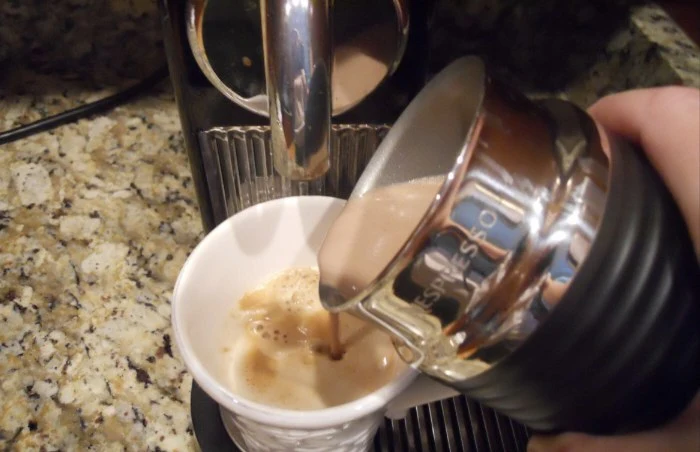Coffee is one of the most popular beverages in the world. The process of making coffee involves several steps, from growing the beans to brewing the final cup. One interesting step in this process is spraying water on coffee beans. This might seem unusual, but it has important reasons. In this article, we will explore why water is sprayed on coffee beans and how it affects the final product.
The Coffee Bean Journey
From Farm to Cup
Coffee beans start their journey on coffee plants, usually grown in tropical regions. After the beans are harvested, they go through several stages:
- Picking: Ripe coffee cherries are picked from the plants.
- Processing: The beans are removed from the cherries.
- Drying: The beans are dried to reduce moisture.
- Roasting: The beans are roasted to develop flavor.
- Grinding: The roasted beans are ground into coffee powder.
- Brewing: The ground coffee is brewed to make the final cup.
Spraying water on coffee beans usually happens during the roasting stage. Let’s dive deeper into why this is done.
The Roasting Process
What Happens During Roasting?
Roasting is a crucial step in coffee production. It transforms green coffee beans into the aromatic brown beans we are familiar with. During roasting, the beans undergo chemical changes that develop their flavor, aroma, and color.
The Role of Water in Roasting
Spraying water on coffee beans during roasting serves several purposes:
- Temperature Control: Roasting generates a lot of heat. Water helps to control the temperature, preventing the beans from burning.
- Even Roasting: Water ensures that the beans roast evenly. Without water, some beans might roast faster than others, leading to an inconsistent flavor.
- Flavor Development: Water can influence the chemical reactions during roasting, enhancing the flavor profile of the coffee.
Benefits of Spraying Water on Coffee Beans
Improved Flavor
One of the main reasons for spraying water on coffee beans is to improve the flavor. Water helps to:
- Enhance Aroma: The moisture from the water can help to release more aromatic compounds, making the coffee smell better.
- Balance Acidity: Water can help to balance the acidity of the coffee, making it taste smoother.
- Develop Complexity: The right amount of water can help to develop more complex flavors, adding depth to the coffee.
Consistent Roasting
Consistency is key in coffee roasting. Spraying water helps to:
- Prevent Over-Roasting: By controlling the temperature, water prevents the beans from getting too dark and bitter.
- Ensure Even Roasting: Water helps to distribute heat evenly, ensuring that all beans roast at the same rate.
Reduced Waste
Spraying water can also reduce waste. By preventing over-roasting and ensuring even roasting, fewer beans are discarded due to imperfections. This makes the roasting process more efficient and cost-effective.
The Science Behind Spraying Water
Maillard Reaction
The Maillard reaction is a chemical reaction between amino acids and reducing sugars that gives browned food its distinctive flavor. In coffee roasting, this reaction is crucial for developing flavor. Water can influence the Maillard reaction by:
- Moderating Temperature: Water helps to keep the temperature within the optimal range for the Maillard reaction to occur.
- Enhancing Reaction Rate: The right amount of moisture can speed up the Maillard reaction, leading to more flavor development.
Caramelization
Caramelization is another important chemical process in coffee roasting. It involves the browning of sugars, contributing to the sweetness and complexity of the coffee. Water can affect caramelization by:
- Controlling Heat: Water helps to prevent the beans from getting too hot, which can lead to excessive caramelization and a burnt taste.
- Balancing Sweetness: By moderating the caramelization process, water helps to achieve a balanced sweetness in the coffee.
Practical Considerations
Amount of Water
The amount of water sprayed on coffee beans is crucial. Too much water can:
- Extend Roasting Time: Excess moisture can slow down the roasting process, leading to longer roasting times.
- Dilute Flavor: Too much water can dilute the flavor compounds, resulting in a weaker taste.
- Cause Over-Roasting: Insufficient moisture can lead to uneven roasting and burnt beans.
- Reduce Flavor Development: Without enough water, the chemical reactions may not occur optimally, leading to a less flavorful coffee.
Timing
The timing of when water is sprayed is also important. Water is usually sprayed:
- Early in the Roasting Process: This helps to control the temperature from the beginning, ensuring even roasting.
- During Critical Stages: Water may be sprayed at specific stages to influence particular chemical reactions, such as the Maillard reaction and caramelization.
Common Misconceptions
Water Dilutes Flavor
One common misconception is that spraying water on coffee beans dilutes the flavor. However, when done correctly, water actually enhances the flavor by controlling the roasting process and promoting the development of complex flavors.
Water Makes Coffee Less Strong
Another misconception is that water makes coffee less strong. In reality, water helps to balance the flavors, making the coffee taste smoother and more enjoyable without reducing its strength.
Conclusion
Spraying water on coffee beans during the roasting process is a crucial step that significantly impacts the final flavor, aroma, and consistency of the coffee. By controlling the temperature, ensuring even roasting, and influencing key chemical reactions, water helps to produce a high-quality cup of coffee. Understanding the science and practical considerations behind this process can help coffee enthusiasts appreciate the complexity and artistry involved in making their favorite beverage.
Related topics:


